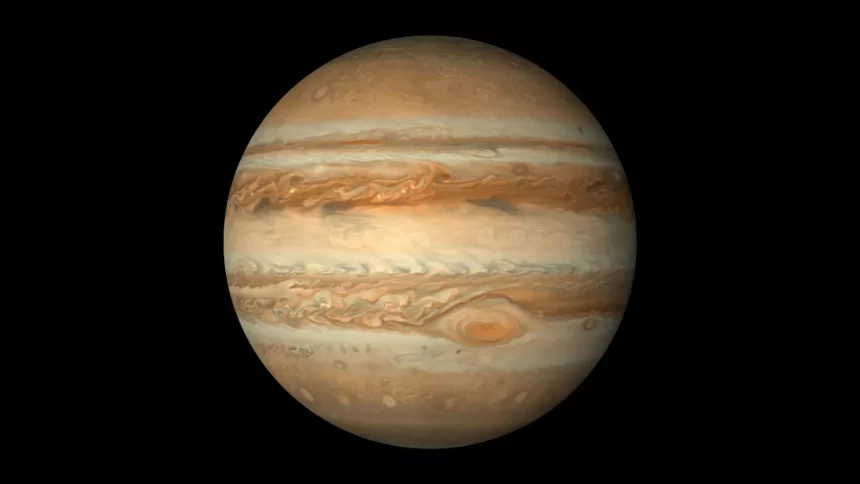Exploring HD 189733b: A Stormy, Sulfuric World Beyond Our Solar System
In the realm of space lies a planet that is both extreme and captivating pushing the boundaries of our knowledge in science. HD 189733b, an exoplanet situated 64 years away in the Vulpecula constellation has drawn the interest of astronomers due, to a find—it contains hydrogen sulfide, in its atmosphere a compound known for its similarity to the scent of decaying eggs.
Unraveling the Enigmas of HD 189733b
Known as a ” Jupiter,” HD 189733b revolves around its star, at 1/170th of the distance that Jupiter orbits the Sun. This close proximity leads to conditions; temperatures reaching a scorching 930 degrees Celsius and winds gusting at speeds up to two kilometers per second. Picture a world where molten glass rains down pushed sideways by winds—a harrowing scenario as detailed by NASA.
The deep blue shade of this exoplanet, of Jupiters color has fascinated researchers but the recent identification of hydrogen sulfide represents a significant breakthrough. Up until now this toxic gas had not been conclusively detected beyond our system. Thanks, to the capabilities of NASAs James Webb Space Telescope.
Since 2022 researchers have used a telescope to explore the makeup of HD 189733b in detail.
The Importance of the Discovery;
Dr. Guangwei Fu, from Johns Hopkins University, a figure in the field stressed that although HD 189733b may not be a destination for human exploration it provides valuable insights into how planets form and how atmospheres behave. The detection of hydrogen sulfide in addition to the known water and carbon dioxide offers information for comprehending the chemical processes occurring in such extreme settings.
Dr. Luis Welbanks of Arizona State University another scientist involved in the research pointed out the similarities between this planet and Jupiter despite its environment. He highlighted that these findings doors to unraveling the origins of planets and tracking how their atmospheres change over time—an aspect, in advancing our understanding of planetary science.
Future Exploration and Research Implications
For those passionate, about astronomy and planetary science, HD 189733b offers a chance. Its close distance and brightness make it a perfect choice for in depth observation and continuous research. With the advancement of telescope technology providing recommendations, for telescopes and astronomy equipment could help readers delve into and comprehend worlds.
Conclusion
In summary HD 189733b serves as an example of the extremes present, in our universe—a planet with incredibly harsh conditions that also offer valuable scientific discoveries. As scientists delve into its secrets we uncover more, about the variety of systems and the challenging truths that lie beyond our solar system.
Whether you’re a stargazer or a seasoned astronomer the fascination surrounding HD 189733b with its sulfur filled skies encourages us to venture expand our knowledge and marvel at the marvels of space.


